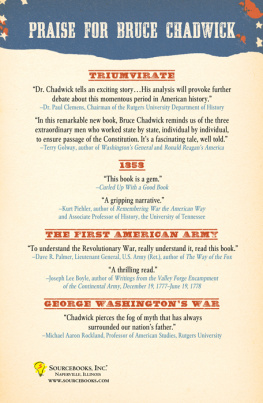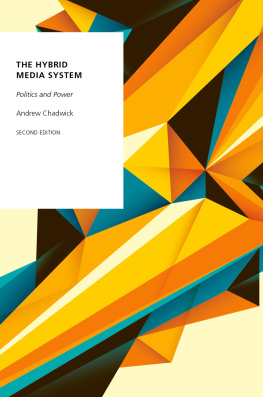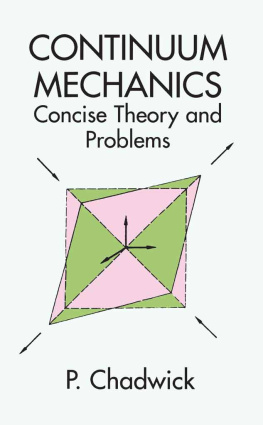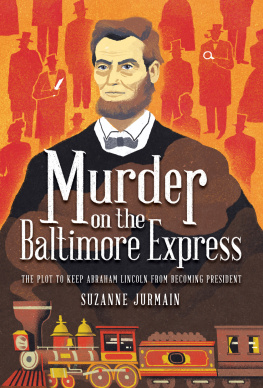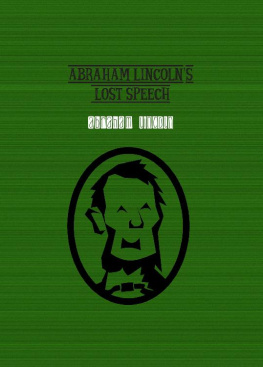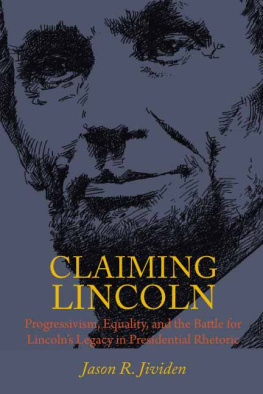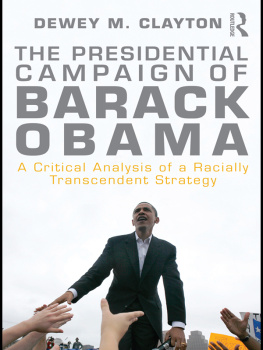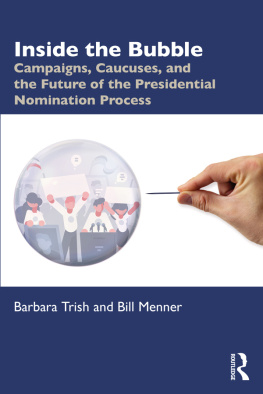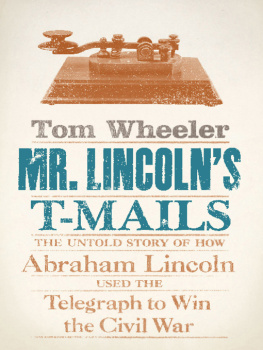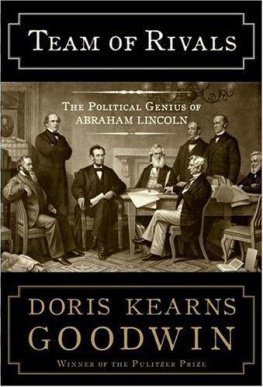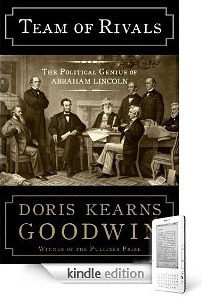

Copyright 2009 by Bruce Chadwick
Cover and internal design 2009 by Sourcebooks, Inc.
Cover design by Bruce Gore/Gore Studios, Inc.
Cover images courtesy of the Library of Congress; hidesy/iStockphoto,
Bridgeman Art Library
Internal images Corbis, Bridgeman Art Library
Sourcebooks and the colophon are registered trademarks of Sourcebooks, Inc.
All rights reserved. No part of this book may be reproduced in any form or by any electronic or mechanical means including information storage and retrieval systemsexcept in the case of brief quotations embodied in critical articles or reviewswithout permission in writing from its publisher, Sourcebooks, Inc.
This publication is designed to provide accurate and authoritative information in regard to the subject matter covered. It is sold with the understanding that the publisher is not engaged in rendering legal, accounting, or other professional service. If legal advice or other expert assistance is required, the services of a competent professional person should be sought.From a Declaration of Principles Jointly Adopted by a Committee of the American Bar Association and a Committee of Publishers and Associations
Published by Sourcebooks, Inc.
P.O. Box 4410, Naperville, Illinois 60567-4410
(630) 961-3900
Fax: (630) 961-2168
www.sourcebooks.com
Library of Congress Cataloging-in-Publication Data
Chadwick, Bruce.
Lincoln for president : an unlikely candidate, an audacious strategy, and the victory no one saw coming / Bruce Chadwick.
p. cm.
Includes bibliographical references.
1. Lincoln, Abraham, 1809-1865--Political career before 1861. 2. Lincoln, Abraham, 1809-1865--Political and social views. 3. Presidential candidates-United States--Biography. 4. Presidents--United States--Election--1860. 5. Political campaigns--United States--History--19th century. 6. Republican Party (U.S. : 1854- ) 7. United States--Politics and government--1857-1861.
I. Title.
E457.C437 2009
973.7092--dc22
2009023197
For Marjorie and Rory
Acknowledgments
I have written several books that involved Abraham Lincoln and never quite understood the magic about him. Lincoln for President was a long and comprehensive study of his first election campaign and, after all of that work and all of that time, I still do not understand all of his magic. Perhaps we never will.
I now grasp part of it, though, discovered in writing this book. I found out exactly how he was elected president and why he was one of the best pure politicians in the nations history. To do that, I had to wade through rolls and rolls of microfilm, read over one hundred books and sift through boxes full of notes. I had to find and read the letters and journals of hundreds of people who knew the sixteenth president or worked with him. I read more nineteenth-century newspapers than I knew were published.
To accomplish that task, and to finish the work, I had much help. I want to thank the staff at the Guarini Library, at New Jersey City University, especially Fred Smith. Additional thanks go to the staff of the Firestone Library at Princeton University and the research staffs at the libraries of Harvard University, Rutgers University, the Morris County Free Library and Randolph libraries (N.J.), and the Abraham Lincoln Library in Springfield, Illinois.
I want to thank Dr. Matthew Pinsker, at Dickinson College, for reading the manuscript and making suggestions to improve it. He was most helpful. I want to thank all the professors at Rutgers and Princeton who read parts of it and also offered suggestions.
Thanks to Joanne Bruno, Vice President for Academic Affairs at New Jersey City University, and her committee, for granting me a sabbatical to research and write the book.
Thanks to Hillel Black, my editor at Sourcebooks, who helped turn this from a good idea into a solid historical work. Thanks, too, to the editorial staff at Sourcebooks, including Peter Lynch, Todd Stocke, Anne Hartman, and Kelly Bale.
I want to thank my agents at McIntosh and Otis, Elizabeth Winick and Rebecca Strauss, who helped to put this project together. Finally, thanks to my wife Marjorie, who assisted in the research and read through the manuscript several times in order to help me.
Prologue
The 1860 presidential election, one of the most critical in United States history, has often been presented as a rather staid four-man race in which Abraham Lincoln, through little effort of his own, was able to slip in the back door of the White House, even though he won only 39 percent of the popular vote. In many books, movies, plays, and stories he is wrongly depicted as a man far above politics whom the nation naturally turned to in its hour of need. His Republican Party won the 1860 election, of which the key issue was presented exclusively as slavery, most agreed, because the country had split into two campsNorth and South. The slavery forces won in the Southern states, and the antislavery forces, the Republicans, took the Northern states and their huge electoral votes and won the election.
Lincoln won, historians seemed to suggest, because the Democratic Party was torn apart and its three different candidatesStephen Douglas, John Breckinridge, and John Bellsplit the opposition vote, giving Lincoln victory. Subsequently, the conventions and election were thought to have provided little drama. The major biographers of Lincoln paid little attention to them. One of his earliest biographers, Carl Sandburg, in his Abraham Lincoln: The Prairie Years, devoted just 40 of 900 pages, or just 5 percent of the book, to the election. Later history works followed suit. David Herbert Donalds 1995 Pulitzer Prizewinning Lincoln devoted only 14 of its 600 pages to the 1860 race, or just 2 percent of the work. Richard Carwardine gave only 9 percent of his Lincoln Prizewinning book, Lincoln: A Life of Purpose and Power, to the campaign, and Doris Kearns Goodwin, in Team of Rivals: The Political Genius of Abraham Lincoln, only spent 38 of 754 pages on the campaigns.
A new look shows, however, that Abraham Lincoln did not back into the presidency but avidly chased and finally captured it after prodigious work in what was a dramatic and often gripping race filled with feuds, jealousies, secret agreements, lies, failed promises, and betrayals among both parties and all four candidates.
Lincolns biggest strength was not simply that he was opposed to slavery. His greatest asset was that he was an outsider, from the distant reaches of Illinois, the western rim of Americas population center at that time, far from the politicians in Washington who had maneuvered the nation into the mess it found itself in 1860.
Over the previous twelve years, Lincoln held no national office, did not vote for or against any of the laws that were causing such firestorms in the 1850s. Fed up with a divided country and sick of the politicians who divided it, people were looking for a fresh face. As an outsider, Lincoln had few real enemies in the political world, unlike the other men in the race, all longtime public officeholders. No one in the Republican Party had any reason to feud with Lincoln, but enemies collected by other candidates over long careers in the public spotlight hurt them.
Lincoln was popular in the northwestern states (today the Midwest), whose combined population had nearly doubled in the previous ten years. They were key to any election and to each partys political future. Lincoln was a well-to-do, successful lawyer who ran as a blue collar rail-splitter. He was nicknamed Honest Abe, a scandal-free man of convictions riding the religious and moral wave against slavery in an era tinged with widespread political corruption. He was flexible, a man who could change as the nation and its people changed. He made it a point from an early age to know what was on the minds of the people as they tumbled through a generation of constant upheaval. He had beaten the powerful Stephen Douglas, the mainstream Democratic nominee, once in the popular vote in the 1858 U.S. Senate race and promised to do it again in the presidential contest.
Next page
